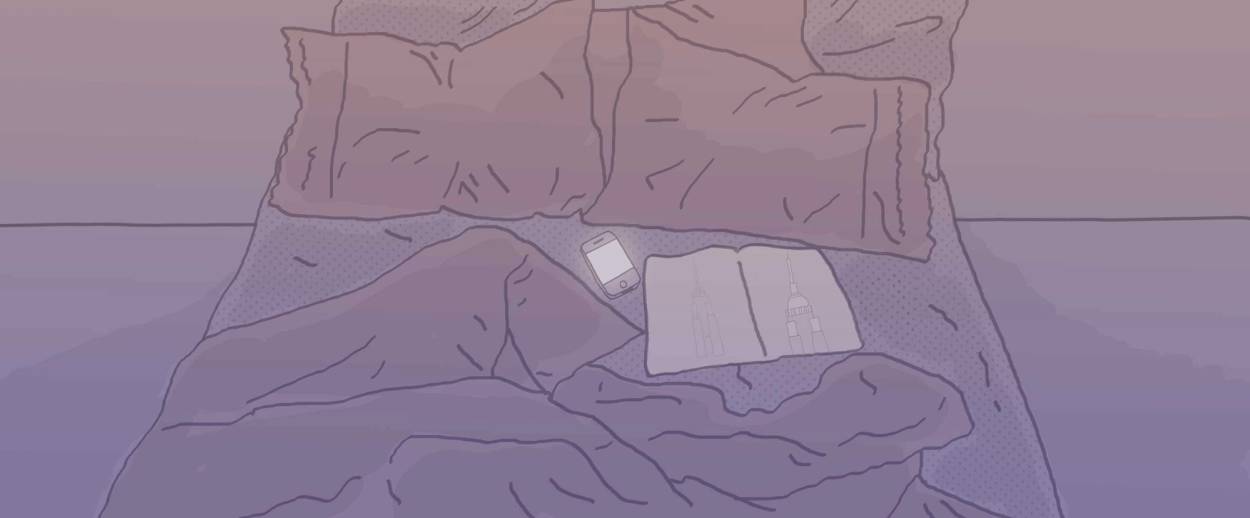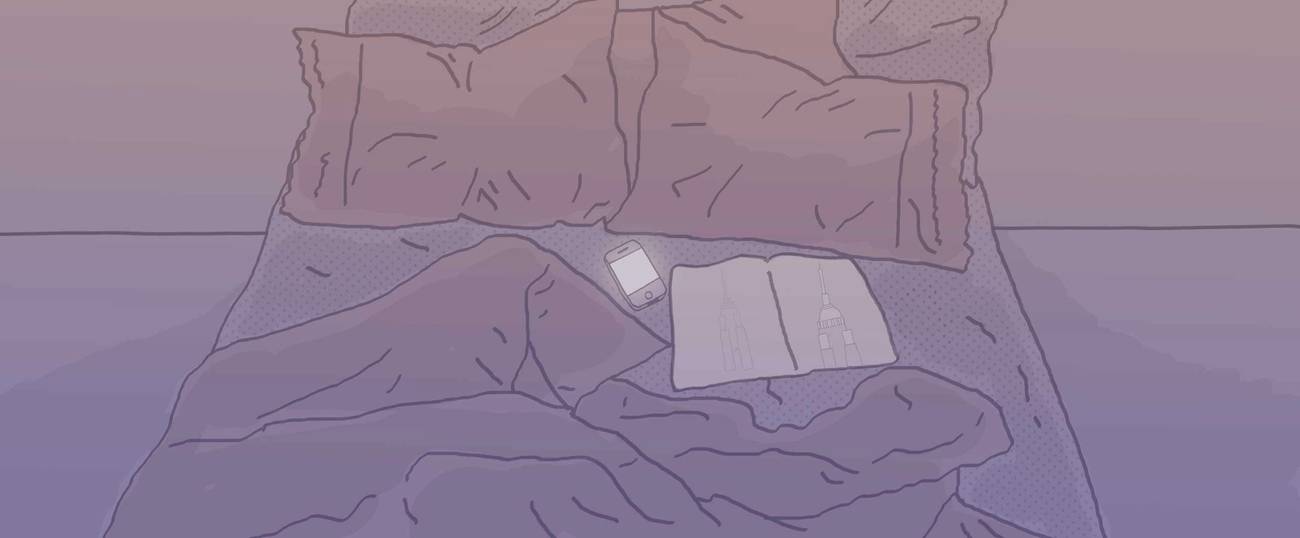Adulting With Jami Attenberg
A Brooklyn woman learns to ‘handle her shit’ in the new novel, ‘All Grown Up’




If you encountered Andrea Bern, the protagonist of Jami Attenberg’s new novel, All Grown Up, in a different kind of story—say, a Hollywood romantic comedy—you would know exactly what fate had in store for her. After all, Andrea is a single woman on the cusp of 40; doesn’t her story have to end with her getting married? “You don’t have to be with anyone. It doesn’t define your worth,” says Indigo, her best friend. But so many influences are constantly telling women the opposite, and Andrea herself isn’t sure. “I don’t know if I want to be alone. I just think I’m going to be,” she says to Indigo, but internally she qualifies the statement: “Well, most of the time I do. It’s complicated. I don’t see myself as having anything conventional. But still I date. I fuck. I seek.”
All Grown Up is a novel about seeking, but not about seeking completion in coupledom—and that makes it unconventional, even revolutionary. “A funny thing happens when you tell a man that you don’t want to get married: They don’t believe you,” Andrea muses. “They think you’re lying to yourself or you’re lying to them or you’re trying to trick them in some way and you end up being made to feel worse just for telling the truth.” What she is after is something larger and therefore harder to grasp: a sense of identity, a purpose. Attenberg, the author of highly regarded novels including The Middlesteins and Saint Mazie, allows Andrea to tell her own story in a series of sharp vignettes. Most of these chapters are named after a woman in her life—a friend, colleague, sister-in-law, neighbor—and each one represents a kind of challenge. Has she discovered what it means to be “all grown up,” Andrea’s elusive, perhaps impossible goal?
Certainly, the title can only be ironic as applied to Andrea herself. While she has the trappings of adult life—an apartment, a well-paying job as a designer—everything about her situation feels provisional. She actively shuns promotion at work, feeling that her job is meaningless. Her apartment, “a small, dusty, crumbling loft in a shitty waterfront neighborhood in Brooklyn,” has only one redeeming feature—a view of the Empire State Building, which Andrea sketches every night. The sketching is all she has left of her early ambition, which was to be an artist. But one day a building starts going up next door, blotting out her view of the Empire State Building and bringing her art definitely to an end. Andrea resents the fact that no one she knows seems to care whether her dreams are dead:
Everyone in your life breathes easier. She’s safe now, they all think. At no point does anyone say to you, ‘So you’ve stopped making art?’ It is because they don’t want to know the answer or they don’t care or they are scared to ask you because you scare them. Whatever the case, everyone is complicit in this, this new, non-art-making phase of your life. Even though it was the thing you loved most in the world.
Already in this passage, on the second page of the book, Attenberg starts to reveal the ways in which Andrea is not, in fact, grown-up. For, of course, no one cares whether she is an artist or not; the artist must create herself, taking responsibility for her own fate, just as every adult ultimately must. And as we get to know more about Andrea, we see that this pattern of laying responsibility on others is central to her character. She is constantly picking fights with her mother, who tells her: “Handle your shit, Andrea. You’re 39 years old. You can do it.”
Attenberg pulls off a difficult fictional feat in allowing us to see around Andrea, to understand more about her than she does herself, even as her voice dominates the book. Sarcastic, funny, indignant, that voice takes the place of a conventional plot, since Attenberg is more interested in observation and memory than elaborate narrative. The chapters are built around scenes and anecdotes, sometimes mordantly funny, as when Andrea is at Indigo’s wedding and observes a pair of guests flirting “heavily, shamelessly, nearly professionally.” But this episode swerves into more serious emotional territory when Andrea tries her own flirtation with a middle-aged divorced man at her table, who rebuffs her: “You wanted to have sex with me. And you just met me. You’ve only known me for three hours.”
Andrea is furious at this moralistic rejection, but also stung by it, since her loneliness and her independence feel impossible to separate. Attenberg is at her best writing about sex, which she does not graphically, but truthfully, with an eye for the way intimacy can heighten solitude. Andrea is drawn to a series of men in the novel—a starving artist, a rich neighbor—but always with a deep ambivalence, a sense that her wounds and theirs make any extended relationship impossible. With Matthew, the artist, she has “lovely, sweet, slow, 1970s, West Coast, beachy sex,” which ends with her shrieking. “ ‘You’re so loud,’ he says, teasingly, when we are finished. ‘That’s because I’m in pain,’ I reply, without even thinking about it.” Indeed, the most intimate physical contact Andrea has in the book is not with a lover, but with a therapeutic masseur, who allows her to feel all her pain and fear as “a ball of heat gathering in my chest above my breasts, just beneath my clavicle.” “I like to think the swelling has gone down, and the heat has cooled,” she reflects. “I like to think I’m better now. But most days I can’t see through the pain to the truth.”
As the novel progresses, the most important sources of this pain are excavated and brought to the surface. We know from the beginning about the failure of Andrea’s art career; later on, we see her relationship with her mentor, Felicia, which ended in disaster and helped drive her away from art. We gain further insight into Andrea’s childhood, with its atmosphere of poverty and vulnerability, and into the early encounters with men that left a deep layer of distrust. “One more drink and we’re sharing our rape stories,” Attenberg writes, with her characteristic combination of insouciance and grief. “Nearly every woman I know has one. If I had a nickel for every time I’ve heard one of these stories I could buy an enormous, plush pillow with which to smother my tear-stained face.”
But the central grief in All Grown Up is not, in a sense, Andrea Bern’s at all. It belongs to her brother, who with his glamorous wife, Greta, has a child afflicted with a severe and fatal illness. More and more, as the book unfolds, it is this niece, Sigrid, who emerges as the central test of Andrea’s character. What will happen to her cherished problems and grievances when they are overshadowed by the most terrifying of all tragedies, a dying child? The moving conclusion to the book is bound up with this question—a fitting climax to Attenberg’s perceptive study of love, sacrifice, and what it really means to be an adult.
***
Read Adam Kirsch’s book reviews for Tablet magazine here.
Adam Kirsch is a poet and literary critic, whose books include The People and the Books: 18 Classics of Jewish Literature.